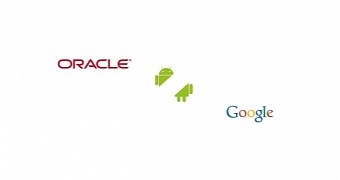The White House at the request of the US Supreme Court has decided to support Oracle in its lawsuit against Google over the usage of the Java APIs on Android devices.
Five years in and the famous Oracle vs. Google copyright lawsuit that has the potential to put a dent into Google's Android earnings, is getting nearer to its final conclusion, and it looks grimmer for the Mountain View search giant.
Why is the White House's decision so important? Why is it the White House making this decision in the first place?
After rulings in favor of both after a couple of back and forth lawsuits, the case has reached the US Supreme Court, where Google has asked for the case to be heard.
This was countered by Oracle, who petitioned for Google's petition to be rejected (very mature, we noticed).
Put in the role of a kindergarten teacher, the US Supreme Court acted accordingly and requested the help of another kindergarten employee, the U.S. Solicitor General, or the White House, represented by President Barack Obama.
This happened in October 2014 and January 2015, and the administration's reply came in the closing days of May, in terms as complicated as the US legal system itself.
Their response was as follows: “Although petitioner has raised important concerns about the effects that enforcing respondent’s copyright could have on software development, those concerns are better addressed through petitioner’s fair-use defense, which will be considered on remand.”
Translating from Black Speech to layman terms this reads that the White House will support Oracle's petition to not have Google's case heard at the US Supreme Case.
The future looks ominous for Google
This frees up Oracle in enforcing its copyright over the Java APIs and demand Google to pay punitive damages that can easily reach billions of dollars.
We doubt Oracle would have the guts to commit reputational suicide by forcing Google to change or alter a technology as popular as Android, but we also doubt this was nothing else except a cash-grab from Oracle as well, which isn't actually invested in Java, being a technology it bought when it acquired Sun Microsystems.

 14 DAY TRIAL //
14 DAY TRIAL //